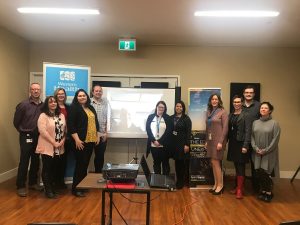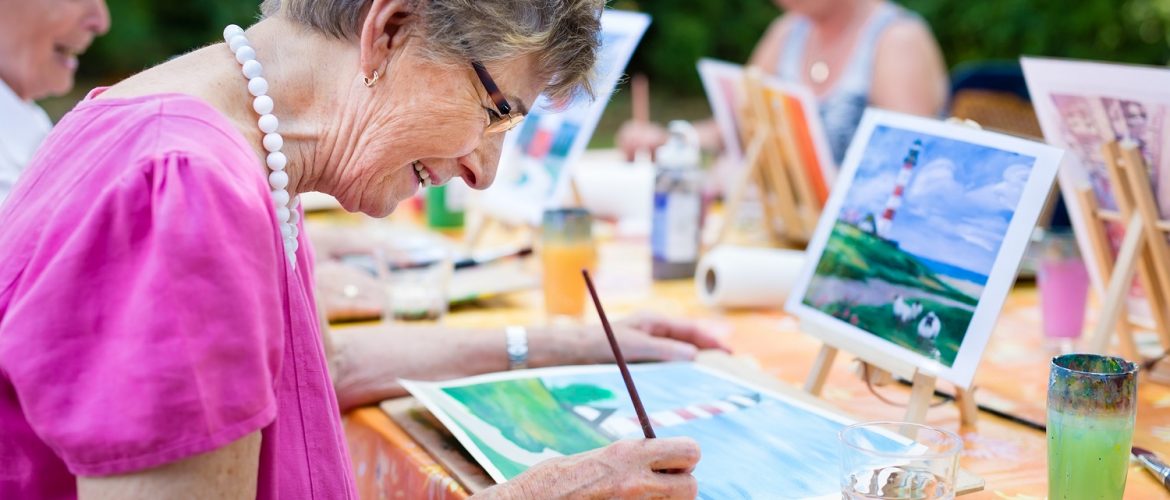Creativity will soon know no bounds for older adults living in Western Newfoundland, thanks to SmArt Aging – a community-based art program aimed at supporting brain health among socially and geographically isolated seniors with mild to moderate frailty or cognitive decline.
“Western Newfoundland is a rural area and we definitely have an aging population. We’re always trying to engage this population, and this program really fits,” says Darla King, Regional Director Community Health at Western Health, and SmArt Aging Project Lead.
The program will begin by engaging older adults in Corner Brook, Deer Lake, and White Bay, N.L.
“It was really the Spark Program and the call for funding that brought our partners, local non-profit Gros Morne Summer Music and Western Regional School of Nursing, together to try something innovative, something we wouldn’t normally do.
Inspiring Innovation and Community Connection
The premise of SmArt Aging is supported by the documented cognitive and social benefits of art. For example, research shows that listening to music can improve cognition and motor skills, and support brain injury recovery.[i] Art has also been shown to alleviate depression and anxiety in those who are socially isolated due to mobility challenges or geographic location.[ii]
SmArt Aging will leverage technology to ensure seniors in rural communities, especially those with cognitive decline, can access the benefits of the arts.

The SmArt Aging Team
King and her team found the momentum they needed to develop SmArt Aging when the Centre for Aging + Brain Health Innovation (CABHI) announced its Spark Program Call for Innovation.
Spark supports the development of early-stage aging and brain health solutions brought forward by point-of-care staff.
“It was really the Spark Program and the call for funding that brought our partners, local non-profit Gros Morne Summer Music and Western Regional School of Nursing, together to try something innovative, something we wouldn’t normally do.”
Local drama, visual and storytelling artists are being recruited to lead program sessions, which participants can join remotely or in-person. A moderator will also join the virtual sessions to support participants during activities.
By building a virtual component into the program, King hopes SmArt Aging will not only be accessible, but also challenge the assumption that older adults aren’t adept with technology. “We know seniors in our region are using technology,” says King. “We want to use this program to show that technology can be successfully used in a senior population.” Through SmArt Aging, older adults will also gain new skills as they learn to navigate virtual platforms and employ technology in their everyday lives.
As for the next stage of the project? King hopes to resume the deployment of SmArt Aging in long-term care facilities once COVID-19 restrictions are lifted. “One thing we’re really happy with is the way the community has embraced the project. We’ve had a lot of interest locally from health providers and community groups. Hopefully that’s a sign that we’ll be successful and spread the concept even further.” With support from CABHI and her community, King and her team are poised to do just that.
[i] https://www.ncbi.nlm.nih.gov/pubmed/27855424
[ii] https://www.health.harvard.edu/mental-health/the-healing-power-of-art


